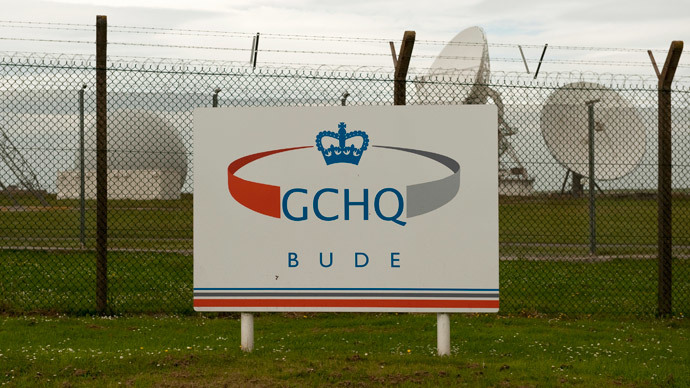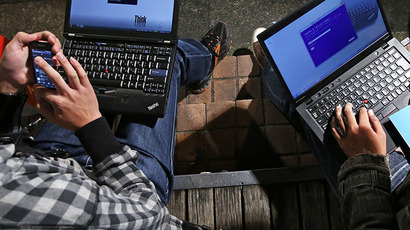GCHQ tribunal hears civil liberties legal challenge

Civil liberties groups are making a legal challenge against the alleged use of mass surveillance by UK intelligence services.
The tribunal follows revelations about UK and US surveillance practices by former US intelligence analyst Edward Snowden. The groups involved intend to challenge the legality of alleged “interception, collection and use of communications” by GCHQ.
UK government intercepted Google, Facebook and Twitter communications.
Internet providers have also filed complaints against
GCHQ.
The case, brought by Amnesty International, the American Civil Liberties Union, Privacy International and Liberty among others, centers on the Tempora mass surveillance operation, the existence of which the UK authorities have neither confirmed nor denied.
In the argument submitted to the tribunal, GCHQ, MI5, and MI6
dismissed allegations of illegal mass surveillance, UK media
reported on Monday evening.
They called the allegations asserted by human rights groups
“extreme, and at times outlandish, factual assertions about
the scope, scale and nature of US and UK interception programs
and intelligence sharing.”
However, the government’s lawyer admitted that the intelligence
agencies have intercepted communications of innocent people in
order to find genuine suspects. These comments were included in
legal papers submitted to the tribunal, according to local media.
#GCHQ refuse to confirm #Tempora exists, despite acknowledging it exists by defending legal basis for its existence http://t.co/srcAIo1s74
— AmnestyUK Media Team (@NewsFromAmnesty) July 14, 2014
Documents leaked by Snowden suggest the program exists and allowed agencies access to the recordings of phone calls, the content of email messages and entries on Facebook.
“This week’s hearing will be the first time that these UK government agencies, including the notoriously shady GCHQ, have appeared in a public hearing to answer direct allegations and state their position on the mass surveillance operations as a whole,” said Amnesty International in a statement.
“The problem with the secret services, though, is the secrecy. It is very difficult to interrogate the legality of aprogramof surveillance, when the people having done it, refuse to acknowledge it happened.”
The Investigatory Powers Tribunal (IPT) will determine program’s existence and find whether it violates Articles 8 and 10 of the European Convention on Human Rights. It will also examine the UK's use of the NSA’s PRISM mass data mining program.
GCHQ has always maintained its work is lawful but critics have questioned the division between domestic and international communications, and how the legal framework applies to specific areas such as intelligence-sharing with the US.
The tribunal follows the UK government’s announcement it will introduce emergency powers to ensure police and security services can continue to access phone and internet records to fight organized crime and terrorism.














